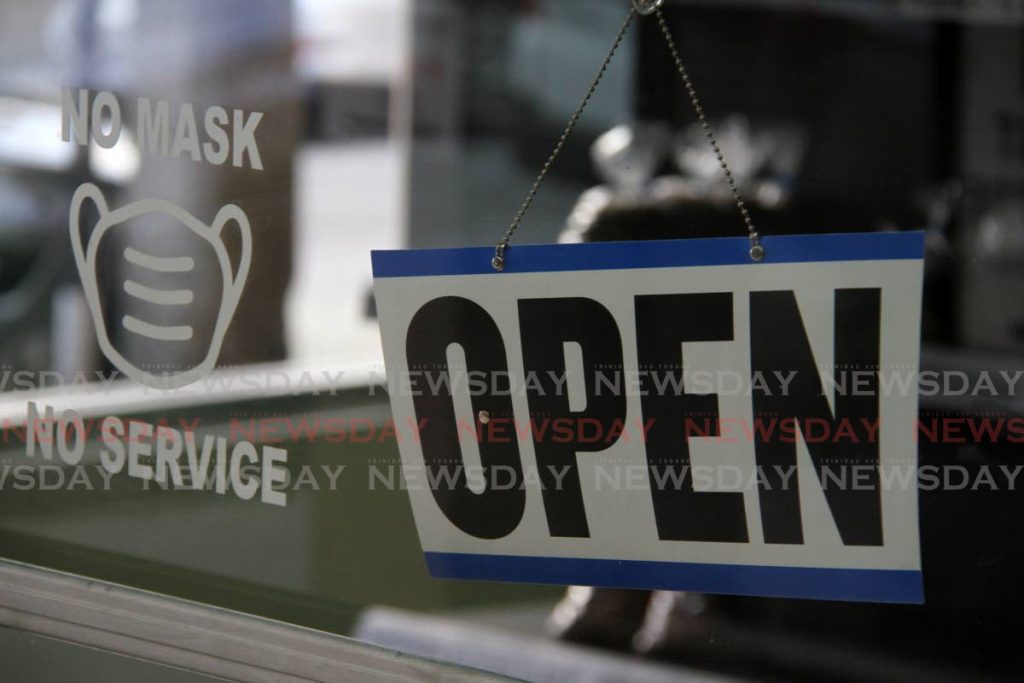Covid19 and change in the ways businesses operate

Diana Mahabir-Wyatt
Have you ever stopped to wonder what the business economy in TT is going to be like if we ever get adequate supplies of vaccine? And if the vaccine we get actually works? And if the restrictions are lifted and everyone can travel and go back to work without worrying about anything other than the usual flu that we get from people at work? Will there be jobs for them to go back to?
If we can take a measure of probability from the people who use algorithms to predict the future based on historical patterns, the changes in business, in culture and society generally will be profound and lasting. Already, most people in business use online technologies for speedier and more immediate communications. And have learned not to interrupt when someone else speaks!
In the past six months the number of meetings organisations scheduled have doubled, in my experience, because they can be done electronically. If you don’t know how to Zoom, learn or become obsolete. Fifty per cent of primary schoolchildren are already proficient in it. Using technology and telecommunications at work and school is like knowing your ABCs.
Much corporate money was lost over the past two years, and expenditure going forward will shrink as accountants realise that many executive “perks” actually brought no return on investment that IT could not provide, and at no cost. Business trips “abroad” will virtually cease, damaging the airline industry, but restoring at least some corporate profits outside the airline and hotel industries.
Business rentals are already falling as professionals have started working from home. Law offices are closing like ti marie, gradually leaving those tall business towers built by insurance companies looking for renters: huge investments bringing in diminishing returns; small temporary town office accommodations booming; and interviews at Starbucks and Rituals favoured over the formality of air-conditioned offices on the fifth floor.
Business, even banking, is increasingly done online, leaving the old-fashioned cheque-cashing to become an annoyance.
In mere months, videos of people picking tomatoes in open farms were replaced by those big overhead machines in enclosed greenhouses where seasons are controlled, that stretch into the distance, harvesting with metal claws. The documentaries calmly point out as the need for food grows with the population, old methods of agriculture will no longer suffice. Our seasonal workers who go to Canada to harvest fruit will have to take advantage of those job opportunities while they last. Likewise in the hospitality, energy and manufacturing industries.
At every crisis in history, what is sometimes called an axial change occurs. It could be wars or plagues like the covid pandemic that wipe out whole cultures. It could be the rise of new religions that teach people that the plagues were punishment from various different gods for the sins of mankind (and it works because almost everyone has some secret sin that they think they should be punished for), or it could be that people rise up. as the news shows us nightly is happening all over the world, because people want things to change. Even when they are teargassed and shot, people are just not fading back into submission.
Eventually new forms of governance take over, as the existing ones have not stopped the pandemic. Does this sound familiar? The Black Plague in 1346 killed a quarter of the population in Europe. Viruses do not die easily, they live on under people’s defences and pop out when defences are down. This one will fade soon, then come back, in smaller but stubborn waves, for centuries to come. People will survive; immunities build and ways of life change.
A pandemic can change the way work is organised. If so many die, as did after the Bubonic and Black Plagues in Europe, those who counted on free peasant labour in agricultural enterprises were no longer able to treat the peasant farmers as they had done in the past. They had to compete for workers who now demanded wages, and during the Industrial Revolution that followed, free generations left agricultural work and went into the cities to work in factories and offices, as happened here after WWII.
Compulsory education of children followed as literate office workers were needed. That, in turn led to demands for better working conditions. Either businesses adapted to the new realities or they stayed in stasis until they faded out; either public health improved or governments were replaced, some by violence, some by vote.
Political promises do not keep governments in power forever. Sooner or later people catch on. Black Lives Matter, Feminists for Equality, Populist Politicians in Revolt and Spirituality without Religion become memories of the past.
These movements don’t have to result in bloodshed and violence, they just turn people away from accepting the systems and controls set up by those who were in power but didn’t provide change. No hard feelings. Just not interested any more.


Comments
"Covid19 and change in the ways businesses operate"